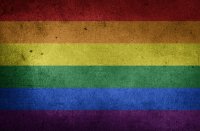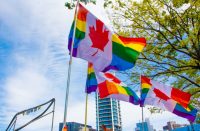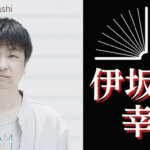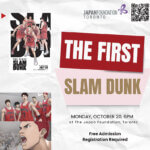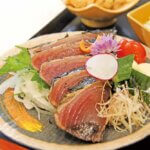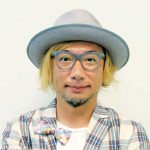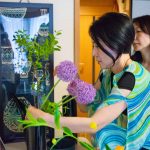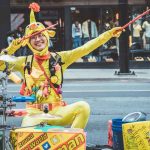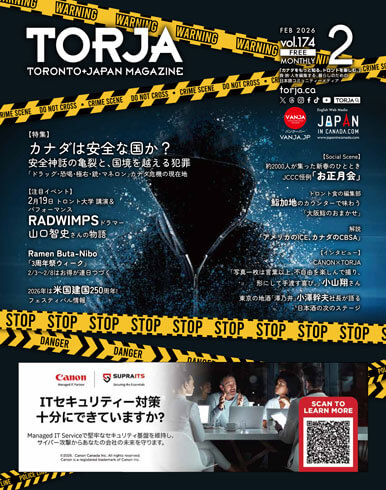Last year, the Japanese-American gay icon (aka “lesbian Jesus”) Hayley Kiyoko’s viral hashtag #20GAYTEEN kicked off a year of LGBTQ visibility like never before. Janelle Monáe opened up about her being pansexual this April and how her Grammys nominated album, ‘Dirty Computer’ set her free. The world fell in love with pop phenomenon Troye Sivan, who cultivated a serious fan base and has been outspoken about his sexuality and his support for the LGBTQ community. So, LGBTQ + musicians have been busy, to say the least.
In comparison to western countries, Japan has a long way to go, in terms of visibility and equal rights for LGBTQ+ people, but many Japanese musicians are celebrating diversity and fighting for gay rights within Japan. This May, nearly 200,000 people took the streets during Tokyo Rainbow Pride 2019, to celebrate the 25th Pride celebration since its first launch. The celebration went on for a week and many big stars, who openly support gay rights in Japan, including Thelma Aoyama, M-Flo, Ryuchell and Wedsneday Campanella participated in celebrating the occasion.
Here are 10 great songs by Japanese LGBTQ+ artists that deserve your full attention.
Most celebrities in the list below identify as queer but some do not, however they certainly put their public platform to good use. What better way to celebrate the upcoming Gay Pride Month than to listen to a playlist filled with happy, gay Japanese anthems?
Happy Pride!
Disco by Queen Bee (Ziyoou-vachi, 女王蜂)
Queen Bee, a Japanese rock band that formed in Kobe in 2009 first made headlines when they were chosen to play on the extremely selective “Rookie a Go-Go” stage at the largest outdoor music festival in Japan, Fuji Rock Festival. The band’s eccentric landmark gig at a secret party held by the Japanese fashion brand, Hysteric Glamour, caused a sensation, bringing Queen Bee to prominence.
All members of Queen Bee work under pseudonyms and the personal details such as their age, sex, family and educational background are not officially stated, though have sometimes been alluded to in passing by members or addressed in their lyrics. The lyricist and composer of the band’s songs, Avu-chan has written, in her songs, about the prejudices one faces being a mixed-race Japanese, and she often explores themes such as sexuality and being a queer individual.
GRRRLISM by Acco Gorila (あっこゴリラ)
Japanese female rapper, Akko Gorilla built up a name for herself with MC battles and has been breaking social conventions with her hyper-speed flow ever since her debut. In 2017, she released a song “Ultra Gender”, which clearly stated that she was going to be a rapper who is willing to address issues you don’t hear much about in Japanese mainstream culture. She released a succession of singles and EPs while being embraced by the general masses; and her single “GRRRLISM” is one of her most ambitious works. Making a reference to Riot grrrl, an underground feminist punk movement that began in the early 1990s in the States. She sings “My body, my choice”, sending an empowering message to listeners to pursue their ambitions, regardless of gender, sexuality, race, or class position in society.
Ikkyu-san by Wednesday Campanella (Suiyōbi no Campanella, 水曜のカンパネラ)
Wednesday Campanella is a J-pop group formed in 2012. Their unconventional music style is a combination of elements such as EDM, J-pop and Hip-Hop genres. The vocalist, KOM_I, who performed at 2019 Tokyo Rainbow Pride and hyped up the crowd with her high energetic performance is known for her advocacy for the LGBTQ+ community. Ikkyu-san (一休さん) borrows from the Japanese monk’s legends and the vivid music video is overflowing with queer references while staring many cross-dressers and drag queens.
Link by RYUCHELL(りゅうちぇる)
Dubbed as the Harajuku style’s charisma model, Ryuji Higa, better known as Ryucheru (りゅうちぇる) is a Japanese model, singer and fashion icon. The genderless star with, his face expertly made up and hair dyed has been making waves in the Japanese entertainment industry in recent years, while challenging the social norms and reducing stigma around men.
While identifying as a straight male, he is hugely famous for his androgynous looks as well as high-toned voice and expressions which is reminiscent of ‘onee’ (meaning homosexual or transvestite). He gained support for his infectiously happy and polite persona and also for his outspokenness towards issues such as inclusiveness and advocacy for diversity.
His song ‘Link’ which he also performed at the Tokyo Rainbow Pride 2019 is said to be the name of his newly born son. He, who was bullied for non-conformity to gender roles, delivers to us a positive message: to love ourselves for the way we are and strive to live the way we want to.
Family Song by Gen Hoshino (星野源)
Gen Hoshino is a multi-awards winning singer-songwriter, musician, actor and writer. His album ‘Pop Virus’ topped the Oricon Album charts four weeks in a row and was certified double platinum by the RIAJ a month after its release. The commercial success of the album earned him a Best Album prize at the 33rd Japan Gold Disc Awards, alongside a Best Song prize for the digital success of the single, and Japanese TV drama’s theme song.
His song, Family Song is a theme song for TBS TV drama, ‘Nigeru Wa Haji Daga Yaku Ni Tatsu (逃げるは恥だが役にたつ)” and the single was a huge hit. It celebrates all forms of “family” that might be unconventional, and aims to destigmatize same-sex couples or families with large age gaps. His message is positive and clear from the awards winning music videos, which he stars as a mother in and all the casts play roles of the opposite sex.


